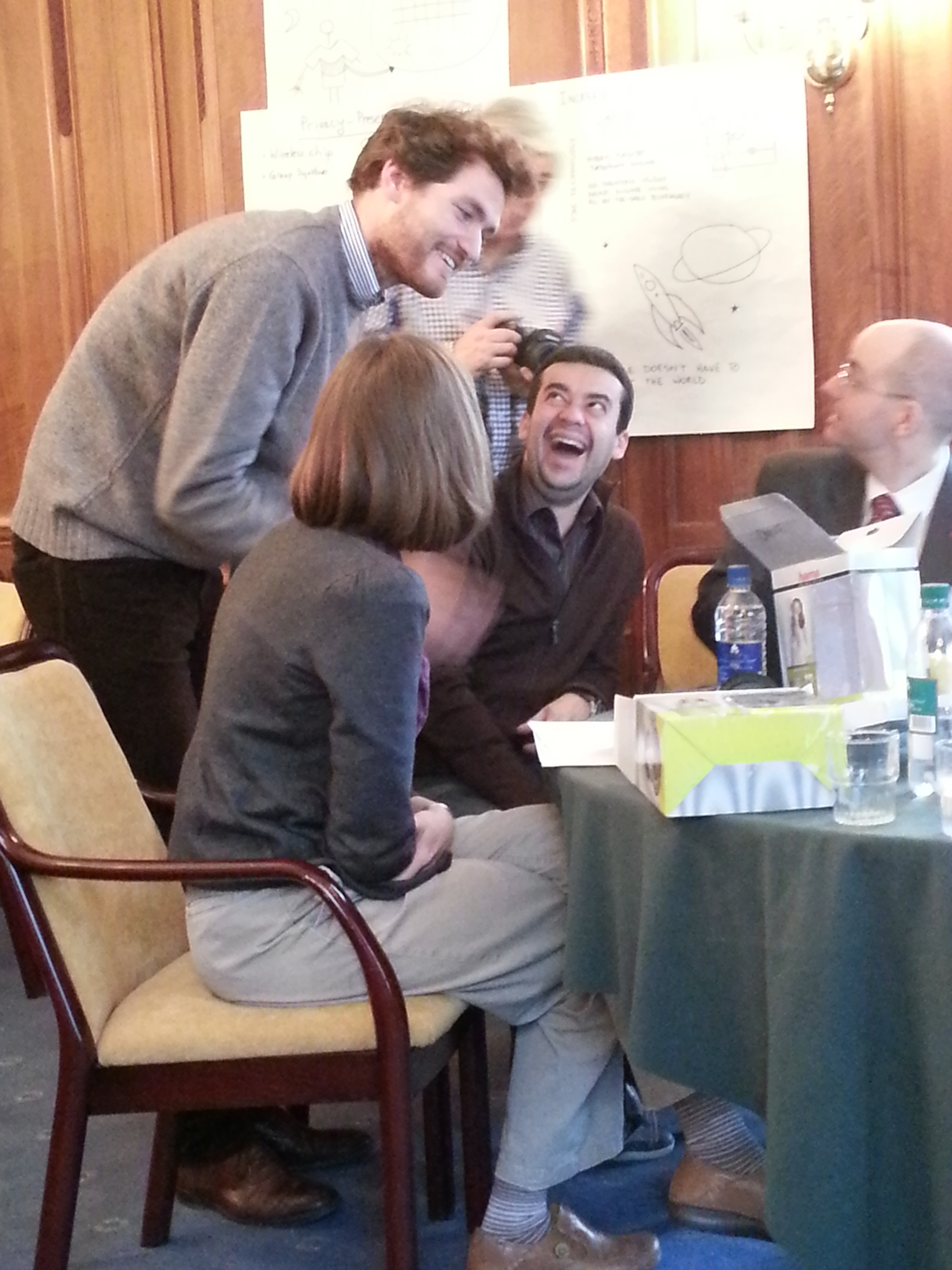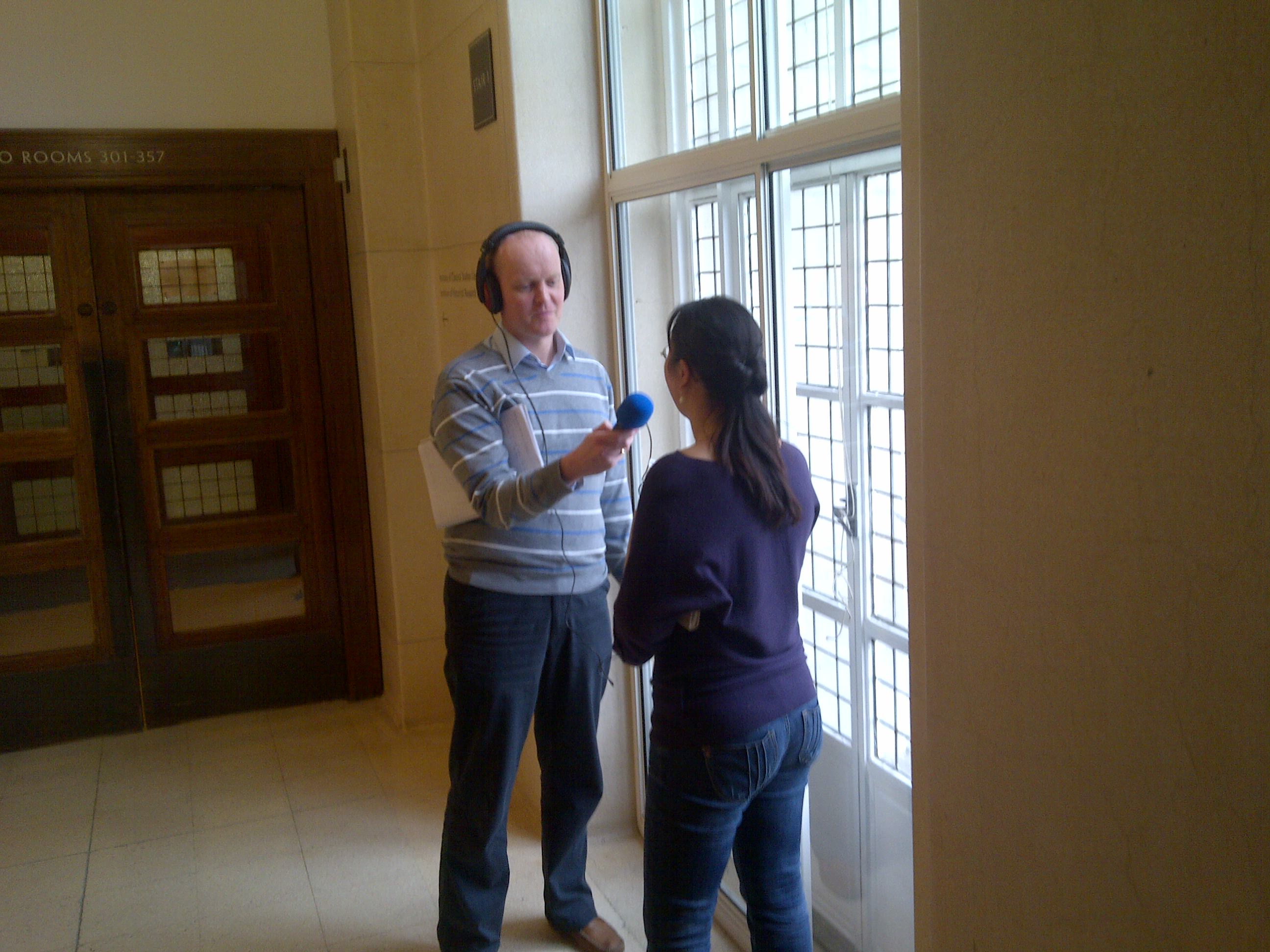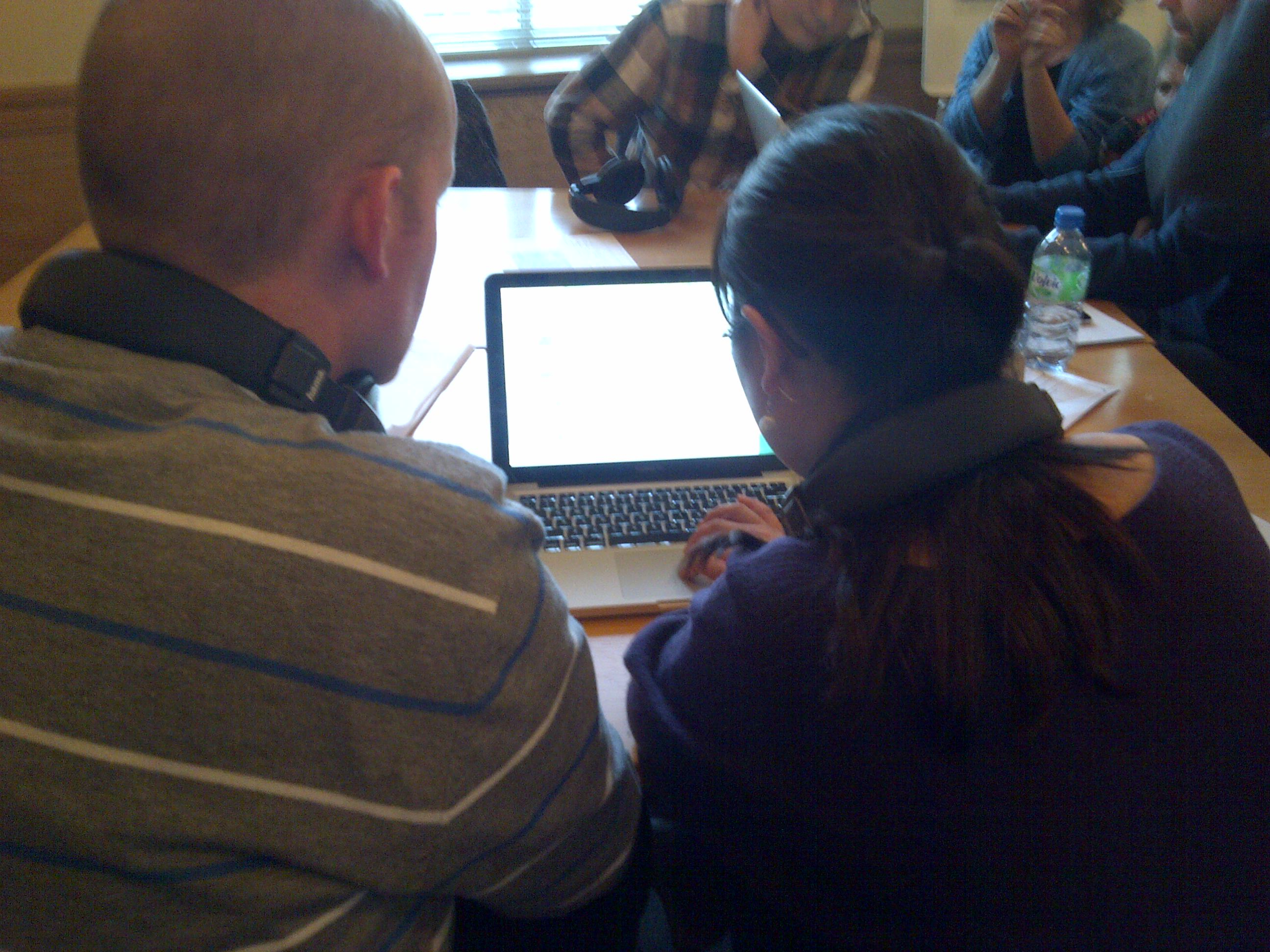 There is no question that Engentia’s Open programme offers unique and powerful training in research collaboration, engagement and impact, the three activities that all academics are expected to pursue if they wish to swim in the current of Research Excellence Frameworks and an increasingly competitive funding environment. People ask me what Pod Academy does during these Open training days and it is sometimes hard to avoid the ‘fall-and-I’ll-catch-you’ vision of corporate weekenders– high-vis jackets, ‘motivational’ speaking, awkward coffee breaks. And although Open training sessions are risky and occasionally strange they couldn’t be further from the ugly or generic truth of those dreaded team-building sessions. We do things that academic research demands of us rather than exercise skills that have no bearing on our work; we learn more about the things we do everyday in our offices, in our labs and in our lecture theatres.
There is no question that Engentia’s Open programme offers unique and powerful training in research collaboration, engagement and impact, the three activities that all academics are expected to pursue if they wish to swim in the current of Research Excellence Frameworks and an increasingly competitive funding environment. People ask me what Pod Academy does during these Open training days and it is sometimes hard to avoid the ‘fall-and-I’ll-catch-you’ vision of corporate weekenders– high-vis jackets, ‘motivational’ speaking, awkward coffee breaks. And although Open training sessions are risky and occasionally strange they couldn’t be further from the ugly or generic truth of those dreaded team-building sessions. We do things that academic research demands of us rather than exercise skills that have no bearing on our work; we learn more about the things we do everyday in our offices, in our labs and in our lecture theatres.
The day begins with a room of strangers and ends with a room of collaborating podcasters. This sounds ridiculous, I know, but that’s the long and short of it. Researchers from every possible discipline, from mathematics to Earth sciences to performance studies, are expected to communicate their research to one another. John King and Nigel Biggs ask participants to talk to the others on their table and work out if there is anyone sitting nearby that they could work with. They come up with an idea that reflects their common interests – a new app about sexual health, an education programme that aims to protect endangered species in China, a new drug that will help the fight against cancer. The lesson: exercising ‘what ifs’ allows change and innovation to take their chance. In these pairs ideas get cooked up and transferred to posters, rough doodles and slogans are put together – now that idea is ready to be communicated to others.
What happens next is what Nigel calls ‘the market’, a simulation of a research environment in which there is a limited number of opportunities to make connections with others. One of the pair needs to go off and seek out other collaborators, the other stays by their poster and promotes and explains the ideas to passers by. New alliances are formed and twos become threes or fours, hybrid projects put together and the new app about sexual health might become part of a wider education programme about communicating wellbeing in China. Suddenly these small ideas have become bigger and stronger, pulling on more people’s resources and expertise.
An intense session of planning follows on the nature of engagement and impact. John King leads ‘Pathways to Impact’ and asks each group how they intend to identify and reach their different stakeholders, communities and policymakers. How does collaboration have impact beyond the world of academia? How are we to reach those app users and alert them to the issues that affect them around the world? What charities, think tanks,  policy organisations or research groups, are concerned and how would they use and facilitate the new collaborative project? The pathways remain rather crooked but the maps have been drawn.
policy organisations or research groups, are concerned and how would they use and facilitate the new collaborative project? The pathways remain rather crooked but the maps have been drawn.
Pod Academy moves in at this point to populate these paths with audible traffic, getting each group to create a short podcast about their work. Academic podcasting is a new and exciting way to communicate research, it’s easy, quick and cheap to do and can be an effective in both widening your research community and letting the public know about the value of your findings. We give information about how to plan, record, edit and promote a piece of audio. This can take the form of advertisement for potential investors, an appearance on mainstream radio or a whole range of other scenarios. The important objective is that the podcast explains the importance of a fictional project, while paying attention to the technical basics of producing high quality sound recordings.
Often reaching broadcast levels of quality, the outcomes of these podcasting sessions are extraordinary for the imagination with which people are able to use their sound environment, for the ways they find to persuade and entertain us. The podcasts are often funny, concise, well-crafted pieces that disguise wonderfully how non-existent the research, leaving us w anting to know more about the work and frustrated that the project will probably not go unrealised.
anting to know more about the work and frustrated that the project will probably not go unrealised.
These Open / Pod Academy sessions – themselves a collaborative effort between two quite separate organisations – go to show just how easy podcasting can be and dispels the myth that it requires a great amount of technical expertise, expensive equipment or the coordinating influence of a research office to put together interesting media about new ideas. In a single day participants at these Open training sessions exercise some fairly fundamental skills: taking risks, communicating across disciplines, planning and executing their research impact before research has fully begun, and exploring how new media formats can inform the ways we work together. These are, we feel, sound principles that can underpin many a new research project, whatever the discipline, scale or audience at stake.
Tess and I would like to thank John, Nigel and all the researchers we’ve worked with on these courses. The sessions have been fascinating and have put us in touch with some fantastic people. If you would like to know more about Open then please visit their website. If you would like Pod Academy to provide training sessions for researchers based at your university then please do write to us and we can put together a seminar to suit your needs.
Tags: academic, advice, early career academics, education, Podcast, public engagement, sound, training

Subscribe with…